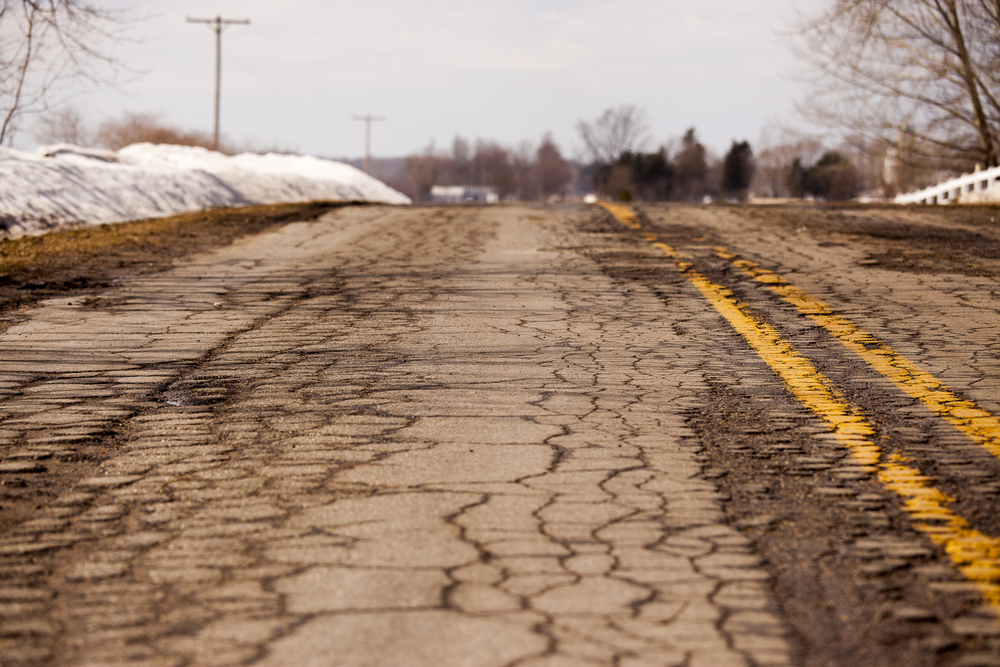In light of the ongoing road-funding debate in our state, I am often asked what we at the Road Commission for Oakland County would do differently if we had adequate funding to address the roads. The answer is a great deal.
We have been underfunded for so long that we struggled to properly maintain the roads for decades. Of course, we simply haven’t been able to reconstruct roads and bridges when needed either or buy new equipment when existing equipment becomes old.
However, it is the routine maintenance that we have had to forgo that has had the greatest impact on the system.
What many people don’t realize is that you don’t just build a road and then leave it alone for 30 years. Rather, for a road to last 30 years, numerous maintenance activities must occur at specific points in the life of the road.
These include crack sealing early in the road’s life, as cracks begin to appear. Sealing these cracks prevents water from getting into the pavement and the base, which can quickly destroy a road.
Later, needed maintenance includes joint repair, shoulder regraveling and grading, drainage repairs, pothole patching, simple resurfacing (overlaying with asphalt) and, finally, major resurfacing involving removal of pavement and base repair.
If all these steps are taken, at the appropriate times, a road should last its full life expectancy or more. If one or more of these steps is missed or is postponed, the result is reduced life expectancy for the road.
In recent decades, there have been numerous cases where we had to defer many maintenance steps on many roads. For example, we were forced to eliminate crack sealing altogether during the most-lean years. We have brought it back, but we cannot make up for those lost years.
Why did we stop crack sealing? Because money was so short that we had to choose between crack sealing and safety-critical activities like pothole patching, snow plowing and traffic-signal repairs.
If we really want our roads to last as long as possible, we need to maximize the routine maintenance activities. In fact, that’s what the concept of asset management, as it relates to roads, is all about.
Road-related asset management, as encouraged by the Federal Highway Administration, espouses performing the correct maintenance activity at the right time to ensure the longevity of each road.
The analogy I like to use is that to keep your house in good shape, there are always maintenance activities that need to be addressed. And, if you defer the maintenance on a house, pretty soon a small roof leak becomes damaged ceilings, damaged walls, damaged floors, etc.
The same is true of roads.
Of course, if we had more money, there are also many roads in our system that need to be fully reconstructed, and we would certainly pursue many more of those as well.
Another challenge that many people don’t realize is that we are also still trying to get tens of thousands of residents out of the mud on the 755 miles of unpaved, gravel roads under our jurisdiction. This is more miles of gravel roads than some Michigan counties have total roads.
While much of the road-funding debate has focused on the crumbling paved roads, these unpaved roads are also a significant challenge. Historically, as development came to formerly rural areas, the gravel roads were paved to accommodate the new traffic.
That has not been the case for decades, though, and many formerly rural townships in Oakland County are now bustling suburban communities — except that some are still served by an unpaved road system.
Just as we have been forced to defer maintenance on the paved roads, we have had to do the same on the gravel roads. No road-funding increase is likely to give us enough money to pave all the gravel roads that should be paved today, but we could increase the routine maintenance activities that help keep those roads passable.
So, while it’s not always glamorous and rarely makes the headlines, it is truly the routine maintenance that additional road funding would allow us to resume that would make the greatest difference on our county roads.
Dennis Kolar is managing director of the Road Commission for Oakland County.
Read more at https://www.crainsdetroit.com/crains-forum/dennis-kolar-how-make-michigan-roads-last-longer

